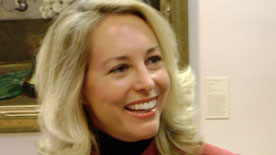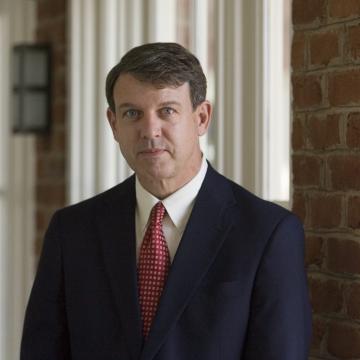The punishing reality of White House investigations
Accounts from the Clinton White House may offer a preview of what’s to come for President Trump’s staff
The full version of this article appears in the Atlantic.
If Donald Trump’s staff thinks that life in the White House has been hard the last four months, they ain’t seen nothing yet.
From Watergate to the Valerie Plame affair, the layering of a major independent investigation on top of the normal travails of 1600 Pennsylvania Avenue has always added an excruciating set of complications to one of the world’s most challenging work environments. Now that former FBI Director Robert Mueller has taken over the federal investigation into Russian interference in the 2016 election, current White House staffers are joining this exclusive, if undesirable, club. Perhaps the best way to see how the administration’s inner life will look in the coming months is to reflect back on a presidency that was practically defined by such investigations: Bill Clinton’s.
In confidential oral-history interviews conducted by the University of Virginia’s Miller Center, former Clinton administration officials sounded a persistent theme: Independent investigations are profoundly damaging to the good order and proper functioning of a working White House. It’s likely that these problems will only be accentuated in a presidency already suffering, by reliable accounts, from internal disarray and bad morale.
There are some notable differences between what the Clintons faced and the current inquiry. During the Clinton years, investigations were run by independent counsels, designated by judges and working with unlimited budgets. Mueller is, instead, a special counsel, operating freely but able to be fired at will by the Justice Department—or, it should be noted, by the president. Too, Mueller has a sterling reputation as a nonpartisan, which distinguishes him from the best known of Clinton’s investigators, Republican Kenneth Starr.
Yet in his oral history, former White House counsel Bernard Nussbaum argued that the investigator’s character is immaterial. Nussbaum described an Oval Office meeting in January 1994, when Clinton was contemplating whether to reauthorize the independent counsel statute, under which that office operated. Public pressure was then building for an investigation into Whitewater, an Arkansas land deal that critics believed revealed corruption on the part of two investors, Bill and Hillary Clinton.
All of a sudden, the media is crying for an independent counsel and I go bananas. … I’m telling people in these discussions that the independent counsel is an evil institution. At one point I said, “You could appoint me independent counsel and it would be bad. … Because once I got control of that institution, if I was the good Bernie Nussbaum, I would spend years trying to turn over every rock to be sure there was nothing under any rock, because I don’t want to be embarrassed when I go back.
If I was the bad Bernie Nussbaum … I’d see this as a way to bring down a president. Then I would twist ambiguous facts, and things like that, to try to make a case at all costs against the president to help me, myself, and my party. … The institution itself has a dynamic that causes that. Look at what Larry Walsh [the independent counsel investigating the Iran-Contra affair] did to [George H.W.] Bush and to [Ronald] Reagan. Look what happened [during Watergate] under [Richard] Nixon, even though it was justified. This is a dangerous thing, and we didn’t do anything wrong.
Mueller is widely respected—no one has seriously floated the prospect of a “bad” Mueller emerging—but he does have broad discretion to handle the investigation as he pleases. Thus those within Trump’s network can only guess at this point as to how expansive the inquiry might be and how long it might last. There was conjecture within the Clinton White House that the Whitewater probe would take only six months. Nussbaum knew better: “‘This will last … as long as [Clinton is] president and beyond. They’ll be investigating things years from now that we haven’t even dreamed about today.’ When I said that, Monica Lewinsky was a junior in college,” he told his interviewers. The president’s relationship with Lewinsky, of course, was discovered roughly four years after Starr took over Whitewater as independent counsel—and after he’d converted an inquiry about a failed real-estate deal into an investigation into the president’s sex life.
Read more at the Atlantic.
Special counsel? It's happened before.

Before there was Trump’s Russia-gate, there was George W. Bush and the Valerie Plame Affair. On December 30, 2003, in a particularly noteworthy case of deja-vu, then–Deputy Attorney General James Comey—yes, that James Comey—appointed Patrick Fitzgerald as special counsel to take over an investigation into the illegal unmasking of CIA agent Valerie Plame’s identity. Before Robert Mueller was appointed last week, Fitzgerald was the most recent instance of a special counsel.
The case started with Plame’s husband, U.S. Ambassador Joseph Wilson, who claimed he had been sent by the vice president’s office to Niger to investigate Saddam Hussein’s alleged attempt to purchase uranium yellowcake (a material needed to build weapons of mass destruction). Wilson reported back that he had found no evidence to support the charges. So when Bush, in his 2003 State of the Union address, laid out the case to go to war with Iraq based on their possession of WMDs, Wilson wrote an op-ed in the New York Times charging the president with misrepresenting the threat.
Eight days later, reporter Bob Novak revealed that Wilson’s wife, Valerie Plame, who was involved in Wilson’s dispatching to Niger, was a CIA operative. Amid the public outcry, the Justice Department opened an investigation to determine whether Bush officials intentionally leaked Plame’s identity in retaliation for Wilson’s criticism.
Fitzgerald interviewed President Bush and Vice President Dick Cheney, as well as Cheney’s chief of staff, I. Lewis Libby—who would go on to become the only person indicted in the case. It was later revealed, however, that Novak’s sources were actually Deputy Secretary of State Richard Armitage and senior advisor Karl Rove. Libby was found guilty on four of five counts of obstructing justice, but Cheney obtained a commutation of his 30-month prison sentence from President Bush. The Libby indictment would further strain the relationship between President Bush and his vice president.
